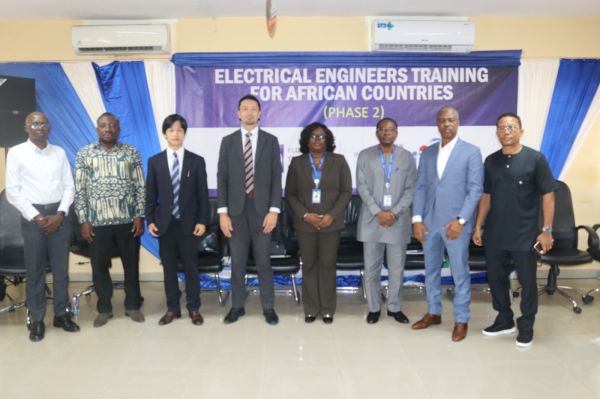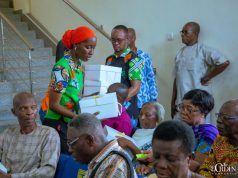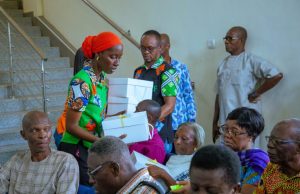The Japan International Cooperation Agency, JICA, the official development arm of the Japanese government is sponsoring the second phase of the training of Electrical Engineers from Ghana and other eight African countries.
The training is taking place at the Electricity Company of Ghana Training School, located in Tema between October 7, and November 22, 2024.
Participants from nine African countries namely: Ethiopia, Gambia, Ghana (NEDCo), Kenya, Liberia, Nigeria, Sierra Leone, Tanzania and Uganda, will be trained on strengthening the electricity transmission and distribution network, promoting the introduction of renewable energy, and promoting energy efficiency.
The training will help in developing human resources and strengthening human networks in the energy sector in the participating countries.
Speaking at the event to kick-start the second phase of the training, Mr. Oda Ryotaro, Senior Representative at JICA Ghana explained: “JICA and ECG implemented a Technical Cooperation Project for Electrical Engineers Training for African Countries in 2016.
Under the project, ECG Training Centre collaborated with Japanese experts to develop comprehensive and structured textbooks and other training materials in reference to the technical standard of ECG and training materials of Japanese Electric Power Companies.”
He continued: “Last year, to share their knowledge and experience gained from the project with neighbouring countries, the “Electrical Engineers Training for African Countries (Phase 1)” was successfully co-organized by ECG Training Centre and JICA for participants from four countries in West and Central Africa.
As a result of the impact of last year’s training observed during a follow-up visit to participating countries by ECG Training Centre, this year, we are happy to expand to the East of Africa and cover nine countries on the continent. The training program aims to improve the skills of technicians in Maintenance of Electrical Equipment and empower engineers in Distribution Planning, Design, System Protection and Control.”
On his part, the ECG Director for the Training School, Ing. Godfred Mensah thanked JICA for the sponsorship and continued support for ECG. He challenged participants to “master fundamentals of electrical engineering and power systems and explore how these emerging technologies can be applied in your various local contexts”.
Talking about how JICA and the Japanese government are empowering African countries and fostering the growth of the energy sector in Africa, Mr. Ryotaro revealed that: “In Ghana, JICA’s Grant Aid project for the construction of new substation in Tamale city is planned to start in 2025.
We have also completed the reinforcement of substations in the Accra Central area as well as the improvement of the Power Distribution System in the Tamale area and Sunyani area through the Grant aid scheme in the past. Similarly, In Ethiopia, Kenya, Nigeria and Tanzania, JICA is supporting power generation from renewable sources as well as contributing to the improvement in transmission and distribution networks including Uganda.”
He revealed further: “In Sierra Leone, the Project for the Extension of Power Distribution Network along the Freetown Peninsula is being implemented while Technical Cooperation Project for Advanced Diesel Generator Maintenance is also under implementation to transfer sophisticated maintenance technologies for the maintenance of generator diesel engines.”
He concluded by admonishing participants: “I hope all the participants will share knowledge with their colleagues and contribute to the capacity-building of their organizations. Your leadership and expertise are instrumental in advancing the development of the energy sector in your respective countries.”
Source: King Edward Ambrose Washman/peacefmonline.com
| Disclaimer: Opinions expressed here are those of the writers and do not reflect those of Peacefmonline.com. Peacefmonline.com accepts no responsibility legal or otherwise for their accuracy of content. Please report any inappropriate content to us, and we will evaluate it as a matter of priority. |
Featured Video















